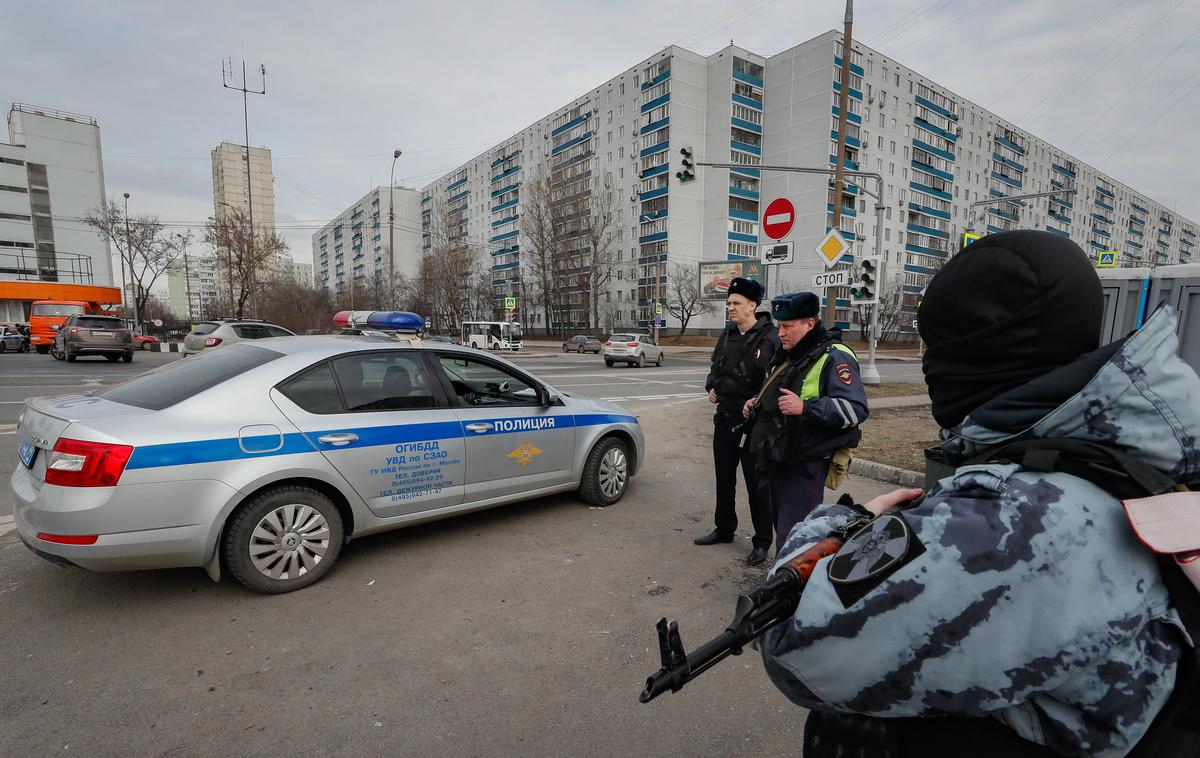
Police officers stationed near the site of the Moscow concert hall attack. Photo: EPA-EFE/YURI KOCHETKOV
A record 669 people, including 17 minors, have been added to Russia’s list of “terrorists and extremists” so far in 2024, more than the total number of people added in any of the past five years, Novaya Gazeta Europe has calculated based on data provided by the Russian financial monitoring service and the website that tracks changes to the register.
People on the list include two managers of a gay bar, writer Boris Akunin, legendary chess player Garry Kasparov, and the perpetrators of the terrorist attack at Crocus City Hall.
The list now includes 14,292 individuals, among them 52 minors. The youngest, 14-year-old Yegor Lauskis, was labelled an extremist in February; last summer he’d been sent to a penal colony for setting fire to railway infrastructure “on Ukrainian orders”.
Another minor recently saddled with an extremism charge was 16-year-old Alexander Levichev, who was detained by FSB officers in November who suspected he was preparing a terror attack on a market in the western Russian city of Kirov. Seventeen people under the age of 18 have been added to the register in 2024 so far.
Many of the new additions to the list have been placed on it for alleged connections with Ukraine. The FSB said that 76 of the 100 terrorist attacks it claimed to have prevented since March 2022 were conducted at the behest of Ukrainian intelligence agencies, and the number of native Ukrainians on the register is now 2.6 times higher than it was in 2021.
The list of terrorists and extremists was first created by the Russian financial monitoring service in 2001. Once on the register, experts note, it is extremely difficult to be removed from it, even after a criminal record has been expunged, and there is no legal mechanism to challenge the Russian authorities’ decision to add a name to the register either.
Anyone on the list is banned from carrying out financial transactions, using bank cards and inheriting property, and is allowed to withdraw a maximum of €100 at a time from banks.
While many people on the list are in jail or in exile, those who have received suspended sentences or have finished serving their prison terms now face unemployment, human rights group OVD-Info wrote.
